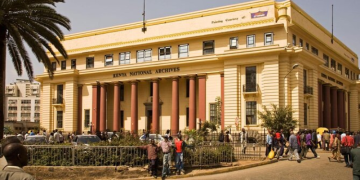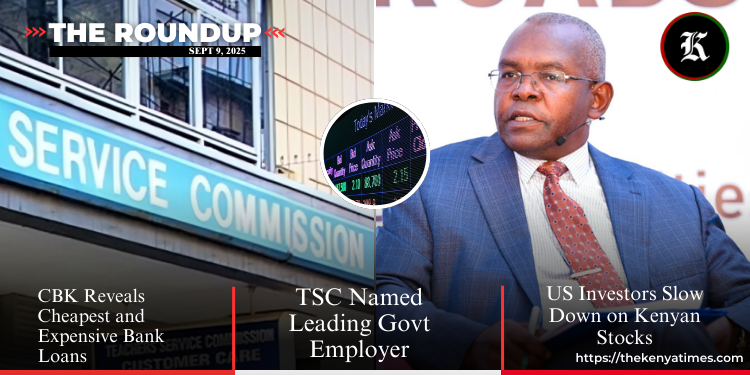Hello, I’m Annah. Welcome to today’s edition of The Business Roundup. In this edition, we look at loan rates across Kenyan banks as released by the Central Bank of Kenya (CBK), the top public service employers for Kenyans seeking jobs, among other highlights.
The Central Bank of Kenya (CBK) has released the average commercial banks’ lending rates as of July 2025, highlighting trends in credit costs across different categories.
According to a CBK notice published on September 9, these categories include overdrafts, personal and household loans, asset finance, SME loans, corporate loans, and mortgages.
The latest data shows significant differences in rates charged by lenders.
Citibank and Standard Chartered are among the cheapest options for personal loans, while Equity Bank and several mid-tier banks are the most expensive.
Subscribe today and stay updated on top news stories in The Kenya Times Business Roundup. The Roundup presents a compilation of business stories that hit headlines throughout the week
CBK Releases Banks with Cheaper Personal Loans
Citibank is the cheapest lender in the country according to CBK, offering overdrafts at 13.50%, asset finance at 12.25%, SME loans at 13.00%, corporate loans at 11.50%, and mortgages at 10.75%.
Citibank offers personal loans at 14.75%, making it the most affordable lender in the country.
Standard Chartered follows closely at 15.00%. Co-operative Bank, Stanbic Bank, and I&M Bank all charge 15.50% on personal loans.
KCB Bank, NIC Bank, and First Community Bank have slightly higher rates at 15.75%.
Other affordable options include Gulf African Bank, National Bank, and Diamond Trust Bank, with personal loans averaging 16.00%.
Barclays Bank also offers loans at 16.00%, while Guardian Bank, Prime Bank, and UBA Kenya charge 16.25%.
Guardian Bank, Prime Bank, and UBA Kenya offer mortgages at 12.00% and personal loans at 16.25%.

Banks with the Most Expensive Personal Loans
Equity Bank tops the list of lenders with the most expensive loans, with overdrafts at 15.50%, personal loans at 16.75%, asset finance at 14.00%, SME loans at 14.75%, corporate loans at 13.25%, and mortgages at 12.50%.
Family Bank has also set higher rates with overdrafts at 15.25%, personal loans at 16.50%, asset finance at 13.75%, SME loans at 14.50%, corporate loans at 13.00%, and mortgages at 12.25%.
Sidian Bank charges overdrafts at 15.25%, personal loans at 16.50%, asset finance at 13.75%, SME loans at 14.50%, corporate loans at 13.00%, and mortgages at 12.25%.
Middle East Bank has maintained similar rates with overdrafts at 15.25%, personal loans at 16.50%, asset finance at 13.75%, SME loans at 14.50%, corporate loans at 13.00%, and mortgages at 12.25%.
Chase Bank has published the following interest rates: overdrafts at 15.00%, personal loans at 16.25%, asset finance at 13.75%, SME loans at 14.50%, and corporate loans at 13.00%.
SRC Reveals Top Public Employers for Kenyans
The Salaries and Remuneration Commission (SRC) revealed that the number of public service employees has been on a consistent upward trend over the years, crossing the one million mark in 2024 to reach 1.023 million employees. This represents a 3.1% increase compared to 2023.
An analysis of the Economic Survey 2025 further shows that wage employment in the modern sector grew by 2.4%, rising from 3.1 million in 2023 to 3.2 million in 2024.
Of this, about 2.2 million workers are in the private sector, while 1 million are employed in the public sector.
The Teachers’ Service Commission (TSC) has consistently remained the largest public service employer, registering the highest growth in employment at 5.2%.
Its employees increased from 390,400 in 2023 to 410,700 in 2024.
Ministries and other extra-budgetary institutions have also remained the second largest public service employer.
In ministries and extra-budgetary institutions, employment rose from 233,600 workers in 2023 to 236,700 in 2024, representing a 1.3% increase.
County governments also expanded their workforce, adding 5,100 new employees over the same period. Staff numbers grew from 221,400 in 2023 to 226,500 in 2024, a 2.3% rise, reflecting continued expansion under devolution.
Parastatal bodies and state-controlled corporations recorded slower growth. Parastatal employment rose 1.2%, from 98,900 workers in 2023 to 100,100 in 2024.
Meanwhile, government-controlled corporations registered a similar 1.2% growth, with staff increasing from 48,600 to 49,200.

US Investors Dump Kenyan Stocks
US investors have reduced their exposure to Kenyan stocks, slashing holdings by 87% in just three years, according to new official data.
Preliminary figures from the U.S. Department of the Treasury and Federal Reserve, released on August 29, reveal that American ownership of Nairobi Securities Exchange (NSE) shares has plunged from Ksh112 billion at the end of 2021 to Ksh14.5 billion by December 2024.
The dramatic exit shows caution among foreign investors toward Kenyan equities, which have struggled with currency depreciation and reduced corporate earnings in recent years.
Despite the equities collapse, the data shows that total investor portfolio holdings in Kenya went up in 2024.
American investors held $1.374 billion (Ksh177.9 billion) in Kenyan securities as of December 31, 2024, compared to $1.371 billion (Ksh177.5 billion) in 2023.
Therefore, although the increase of just $3 million (Ksh388.5 million) is modest, it is the first increase in U.S. holdings in five years. The majority of funds remain in government and corporate debt securities, valued at $1.261 billion (Ksh163.3 billion).
- The Standard Group PLC has announced leadership changes to its Board of Directors. In a notice dated September 8, the company revealed the appointment of Ms. Laila Denise Cherobon as a Non-Executive Director and Mr. Edward Mwasi as an Independent Non-Executive Director, effective immediately.
- The National Treasury is issuing a switch bond as part of its 2025/26 fiscal year borrowing plan, aiming to reduce pressure from maturing instruments.
- Safaricom has launched a new monthly data bundle dubbed Bundle ya Dere, a tailor-made solution designed to empower taxi drivers by lowering data costs, offering insurance protection, and providing free maps for easier navigation.
- The Kenya Revenue Authority (KRA) has issued a clarification on whether all deposits into a taxpayer’s bank account can be deemed as income. KRA said its mandate under Section 3 of the Income Tax Act, allows the taxman to classify unexplained bank credits as income unless taxpayers provide verifiable evidence that such funds represent non-taxable inflows.
- Kenyan banks have lost more than Ksh1.5 billion to hackers in cyber and technology-related fraud, according to the Central Bank of Kenya (CBK), according to the Financial Sector Stability Report 2024.
- The Central Bank of Kenya (CBK) has joined the ranks of globally benchmarked institutions after attaining the ISO/IEC 20000-1:2018 Certification for Information Technology Service Management (ITSM).
- The Kenya Tourism Board (KTB) and Visa have signed a partnership agreement aimed at enhancing Kenya’s tourism sector in innovative, data-driven ways designed to drive growth, streamline payments, and create world-class visitor experiences.
- Kenya Export Promotion and Branding Agency (KEPROBA) has introduced the Make It Kenya ePortal, a powerful tool and free online platform that connects local sellers with global buyers. The initiative, launched by KEPROBA, allows registered sellers to showcase their “Made in Kenya” products on a centralized platform accessible to international buyers seeking authentic Kenyan goods.
- The government of Kenya is looking at a new way to deal with the rising debt crisis, and Treasury Cabinet Secretary John Mbadi has proposed swapping it for food security. According to the Treasury’s annual borrowing plan for the 2025/2026 financial year, the government is preparing a USD 1 billion (Ksh13 trillion) Debt-for-Food Swap with the World Food Programme (WFP), potentially by March 2026.
- National Treasury has walked back on a plan to balance borrowing from domestic and external markets, signaling new realisation of the daunting task to get funding from outside. In the annual borrowing plan for the 2025/26 fiscal year, Treasury plans to borrow 68.1 percent (Ksh613.5 billion) of financing needs for the year locally and Ksh287.4 billion (31.9 percent) from external markets.
Currency Trends
The Kenya shilling remained stable against major international and regional currencies during the week ending September 4, 2025.
It exchanged at Ksh 129.24 per USD on September 4, unchanged from August 28.
Kenya’s apex bank, the Central Bank of Kenya (CBK), quoted the shilling at 129.2399 on Wednesday, September 10.
Against other major currencies, the shilling traded at:
- Sterling Pound – Ksh174.9973
- Euro – Ksh151. 4110
- South African Rand – 7.3799
- Japanese Yen (100 units) – Ksh87.7273
Against regional currencies, the shilling exchanged at:
-
- Ugandan Shilling – Ksh27.1008
- Tanzanian Shilling – Ksh19.2858
- Rwandan Franc – Ksh11. 2169
Follow our WhatsApp Channel and X Account for real-time news updates.





















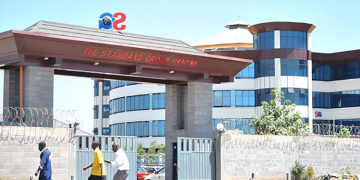

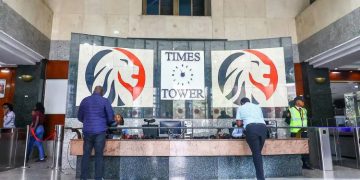
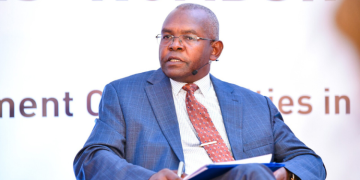
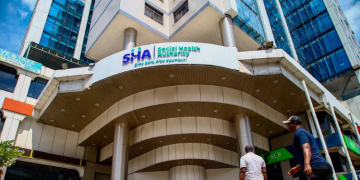



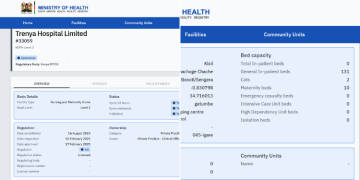
























![Ntv Anchors Bring Village To Standstill With Heartwarming Birthday Party [Photos] A Photo Of Ntv Swahili Anchors Lofty Matambo And Fridah Mwaka During Their Birthday Celebration In Kilifi County Photo/ Lofty Matambo And Fridah Mwaka]( https://thekenyatimescdn-ese7d3e7ghdnbfa9.z01.azurefd.net/prodimages/uploads/2025/09/A-photo-of-NTV-Swahili-anchors-Lofty-Matambo-and-Fridah-Mwaka-during-their-birthday-celebration-in-Kilifi-County-PHOTO-Lofty-Matambo-and-Fridah-Mwaka-360x180.png)


